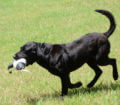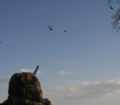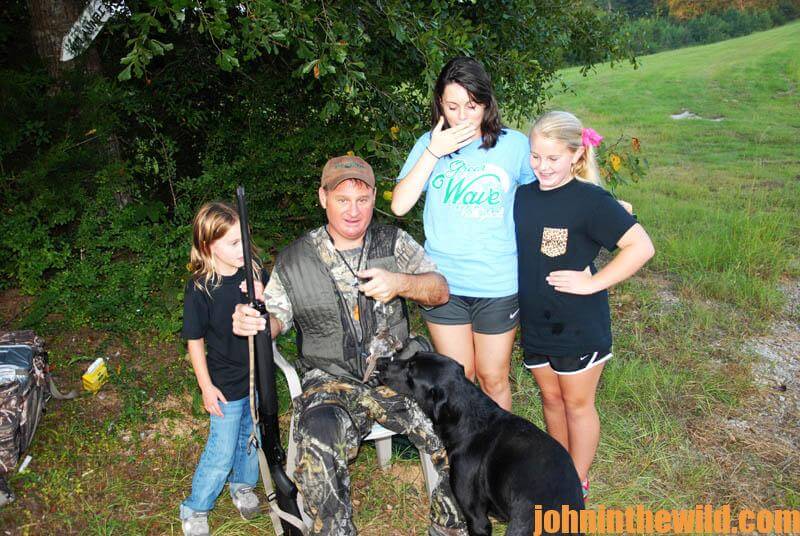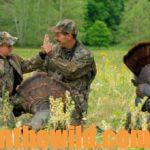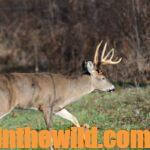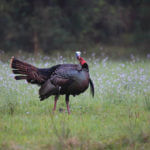Editor’s Note: Jared Mophett of Honey Brake Lodge (www.honeybrake.com) in Jonesville, Louisiana, has been keeping dogs tuned-up and ready for dove season for over 20 years. “I’ve learned plenty from great trainers on how to keep our dogs at Honey Brake in peak performance to retrieve,” Mophett says. Mophett also competes his dogs in the Amateur Division of retrieving dog competitions and in the Super Retriever Series and explains, “I run some dogs in the hunt test. I also have some dogs with professional trainers.” Often, when you’re talking about retrievers, some waterfowlers don’t like to use their duck and goose dogs to pick up doves. But according to Mophett, he tunes up his Labradors before dove season and hunts them during dove season. He believes his dogs are better prepared to find and retrieve waterfowl by his working with them well before dove season arrives. He says you need to expect your dog to perform just as well in the dove field as it does in the duck blind. Remember that you’re training your dog while it’s dove hunting. Let’s look at 10 secrets for getting your retriever prepared for dove season.
 Tip 3: Spend Time at Every Training Session Working on the Dog’s Obedience Training
Tip 3: Spend Time at Every Training Session Working on the Dog’s Obedience Training
The dog should know the command, “Here,” which is a command to call the dog to you. “Heel,” is the command to have the dog walk beside you. “Sit,” is the command to make the dog sit and stay seated until you give it the command to “Go,” or “Back” and “Kennel” which means, “Go get in your kennel.” Going through basic obedience training is very necessary when you’re getting your dog prepared for dove season. Regardless of how well that dog can retrieve, if you can’t control it, you have a dog with problems. The way the dog learns how to do what you want it to do is for you to repeat the same commands over and over again and expect the dog to do the same thing every day when it hears one of those words.
Tip 4: Make Sure Your Dog Is Steady on the Line
I’m sure that if you’ve been on many dove hunts where people bring their retrievers, there will be dogs barking, running around and not staying with their hunters. They’re like mischievous children that want to do everything except what their parents tell them to do. If you let your dog act that way, then training it for waterfowl season will be almost like starting all over. The retriever needs to:
* stay right by your side, as you’re going to the field to hunt doves or ducks;
* sit right beside you, while you’re looking for birds, and when you’re shooting;
* not be looking at other people and instead watch the shot birds as they fall; and
* not leave your side until you give the command to send it out to make the retrieve.
 I send my dog out by calling its name and telling it to “Mark.” Then I send it out to make the retrieve. These commands are exactly what you should expect your dog to do during waterfowl season. Don’t forget, you’re using dove season to tune your dog up for waterfowl season. The more disciplined the dog is, and the more opportunities it has to make retrieves correctly, the better the dog will perform during dove and waterfowl seasons.
I send my dog out by calling its name and telling it to “Mark.” Then I send it out to make the retrieve. These commands are exactly what you should expect your dog to do during waterfowl season. Don’t forget, you’re using dove season to tune your dog up for waterfowl season. The more disciplined the dog is, and the more opportunities it has to make retrieves correctly, the better the dog will perform during dove and waterfowl seasons.
To contact Mophett at Honeybrake, call 318-775-1007.
To learn more about hunting, check out John E. Phillips’ print, Kindle and Nook eBooks and audiobooks at johninthewild.com/books.

